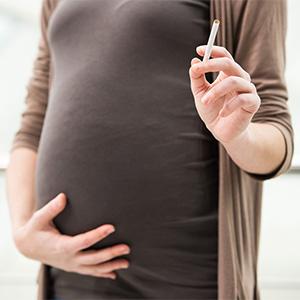
Smoking is known to cause and effect many systems in our body with adverse consequences, but how does it affect fertility in women? Dr Sarita Bhalerao, an established OBGYN from Mumbai helps us understand the subject in more detail.
1. Is smoking a growing concern for infertility in women?
Smoking and consumption of tobacco have in general been a growing concern for women all over the world. It is a major health problem affecting developing countries especially amongst the youth and teenagers. In India alone, the smoking rate in females has increased from 1.4% to 2.9% from 2005 to 2010 and is growing at a faster rate than males. This prevalence is estimated to rise to 20% by 2025!
(Goel S, Tripathy JP, Singh RJ, Lal P. Smoking trends among women in India: Analysis of nationally representative surveys (1993-2009). South Asian J Cancer 2014;3:200-2).
Lack of awareness and sociocultural pressures prevent effective tobacco control measures and the adverse effects on the reproductive system. We are now seeing more and more younger women who are smoking and seeking infertility treatments.
2. How does smoking affect a woman’s reproductive system?
Various aspects of the reproductive system seem to be affected by tobacco ranging from development of the egg to hormonal production. Even if fertilization occurs, implantation and growth can be hampered. This can lead to an increased risk of miscarriage and preterm labour. Fetal growth restriction is more likely in smokers.
In addition to hazardous pregnancy outcomes, smokers are also at risk for cancers of the breast, cervix and ovaries. Studies also show that smokers reach menopause almost 2 years earlier than non-smokers. Even women exposed to second-hand smoking reach menopause about a year earlier!
3. Does chewing or smokeless tobacco also have the same effects?
Yes chewing or smokeless tobacco use has the same harmful effects as smoking on fertility.
4. Why does it affect a female’s ability to conceive?
Smoking can harm a woman’s ovaries decreasing egg production. It also interferes with fertility treatments. In 2005, McMaster University (Ontario/Canada) conducted a study on the effects of second hand smoke on fertility on 225 women. These women were undergoing infertility treatments (IVF or ICSI) and asked about their smoking status. In spite of similar embryo quality, the results of implantation and pregnancy rates showed that -
- 48% of non smokers became pregnant
- 19% of smokers became pregnant
- 20% of non smokers who lived with a smoker became pregnant
Related reading: Prevention of infertility:What every woman should know
5. What chemical in a cigarettes are most harmful for fertility?
Cigarettes are known to contain over 4000 chemicals; nearly 400 of these are known carcinogens.
6. Can smoking cause miscarriages?
Tobacco use is a known factor in causing miscarriages and ectopic pregnancies. The risk of miscarriage increases with the amount smoked (1% increase in risk per cigarette smoked per day).
Smoking is also harmful to a developing baby.
7. Can secondhand smoke affect fertility too? Should my partner/husband also quit smoking?
Smoking can affect fertility in both men and women. Therefore, it is a good time for both partners to quit! Studies have now proven that living with a smoker and thereby exposing oneself to secondhand smoke is also detrimental to the expectant mother. The damage is the same as being a smoker herself! Also, it is difficult for only one partner to give up smoking if the other one continues to smoke.
8. Can quitting reverse the damage? How long does it take?
Stopping smoking and tobacco use can indeed improve a woman’s chances of conceiving. Most of the adverse effects of smoking are seen to be reversed within a year’s time.
9. When does one need to stop smoking before planning conception?
Quitting before trying to conceive is viewed as the most ideal situation for smokers. However, even quitting during the first 3 months of pregnancy can significantly reduce the risks of premature birth.
Even the birth weight is almost at par with a non-smoking pregnant female. Quitting later on during the 2nd or 3rd trimester may reduce much of the effect of smoking on birth weight.
Related Reading: Pre-conception care for a healthy pregnancy
10. What is the best way to quit smoking?
Quitting is not always easy and can require a few trials before on can be successful! Besides behavioural modifications and change in lifestyle, quitting requires a lot of mental resolve and will power. However there are help clinic, support groups, online forums etc that may be helpful. Nicotine Replacement Therapy (NRT) options in the form of chewing gum, skin patches, sprays, lozenges, etc. are also available. Pharmaceutical drugs that require prescription including Bupropion(Zyban) and Varenicline(Champix) have also shown success rates.
Want to quit smoking - Join our No Smoking Community






